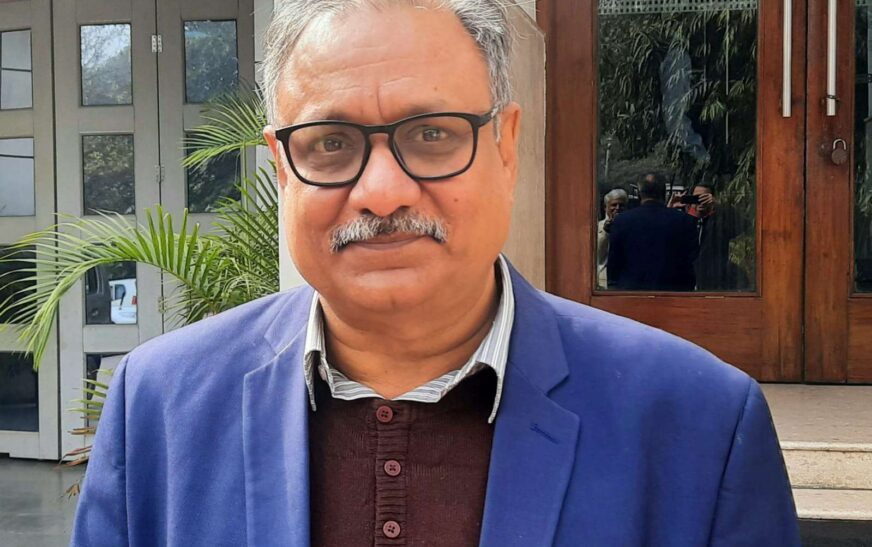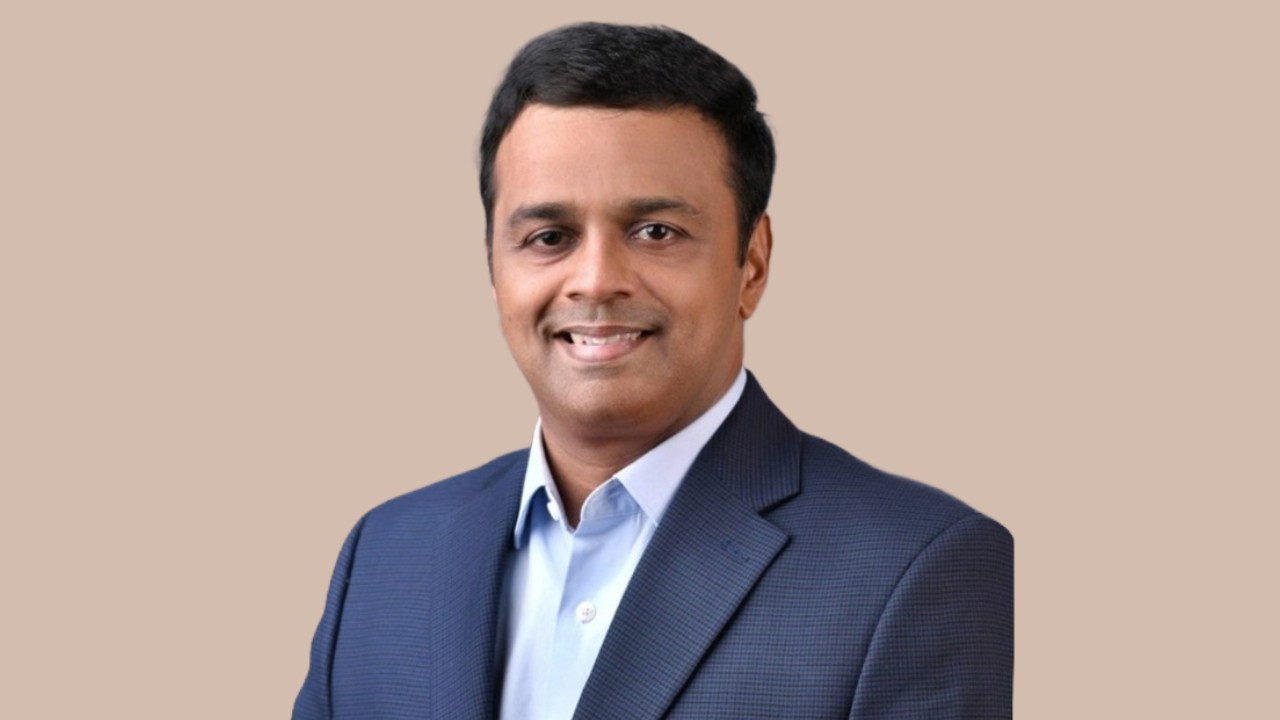Dr. Suneel Pandey holds a prominent position in the realm of environmental sustainability and waste management, presently serving as the Director of the Environment and Waste Management Division at The Energy and Resources Institute (TERI). With an extensive background spanning over thirty years in both research and consultancy, Dr. Pandey brings a wealth of expertise to his current role.
His vast experience encompasses various aspects of waste management, covering municipal, industrial, and hospital waste. Dr. Pandey’s proficiency extends to monitoring air, water, and soil quality, conducting site assessments, and evaluating effluent treatment plants (ETPs). His contributions to the field have garnered national recognition, notably with his appointment as Chairman of the expert committee on circular economy in e-waste management by the Ministry of Electronics and Information Technology.
Prior to joining TERI, Dr. Pandey served as a Consultant for ERM India, where he played a pivotal role in projects related to hazardous and hospital waste management, environmental site assessments, and institutional strengthening and capacity building. His commitment to advancing sustainable practices has been a consistent driving force throughout his career.
In a recent interaction with The Interview World, Dr. Suneel Pandey sheds light on the current approaches to e-waste management within the industry, emphasizes TERI’s significant contributions in this area, outlines strategies for green electronic manufacturing, and highlights the innovative strategies employed by TERI to effectively manage e-waste. Here are the key highlights from his insightful interview.
Q: What are the key insights regarding the current state of e-waste management within the industry?
A: The handling of e-waste, including collection, transportation, processing, and recycling, is predominantly managed by the informal sector. This sector operates without regulation but maintains extensive networks. However, it often fails to recover all potential materials and value from discarded electronics, leading to environmental hazards. Leakage of toxins into the environment poses significant risks to both the environment and the health of workers.
India, ranking as the world’s third-largest producer of e-waste, confronts a pressing challenge as electronic waste production surged from 700,000 tonnes in FY18 to 1.6 million tonnes in FY22. Globally, the informal sector in developing countries manages 90-95% of e-waste. Shifting the responsibility for recycling hazardous materials from the informal to the formal sector is essential to environmental preservation. To achieve this, robust regulations such as Extended Producer Responsibility (EPR) and Restriction of Hazardous Substances (ROHS) are imperative.
The formal integration of the informal sector into a transparent recycling system holds the key to better control over environmental and human health impacts. Efforts have been made to integrate the existing informal sector into the evolving scenario.
Q: What is the contribution of TERI within this particular domain?
A: Leveraging extensive research, proactive involvement in policy shaping, fostering skill enhancement, pioneering innovative technologies, and executing practical projects, TERI is now recognized for its significant impact worldwide. Through awareness campaigns, skill development initiatives, and comprehensive reports on e-waste management strategies, we strive to make a tangible difference. Our evolution into an organization influencing policymakers and empowering grassroots workers across rural India, while offering localized solutions with a global perspective, fills us with immense pride.
Q: What strategies can the industry implement to facilitate the widespread adoption of green electronic manufacturing, ultimately reducing the accumulation of e-waste?
A: To enhance product design, we must prioritize environmental factors such as energy efficiency, recyclability, and the use of non-toxic materials. This entails creating products with durability in mind, facilitating easier repair, upgrades, and eventual recycling.
Implementing policies that hold manufacturers accountable for the entire lifecycle of their products, from collection to disposal, serves as a strong incentive for designing with recyclability and sustainability at the forefront.
Manufacturers can encourage consumers to return old electronics for recycling or refurbishment by offering incentives such as trade-in programs, discounts on new purchases, or charitable donations for returned devices.
Transitioning to a circular economy model, where materials are continuously reused and recycled, requires establishing closed-loop systems for electronic components and materials to minimize reliance on virgin resources.
Investing in research and development is crucial for exploring innovative technologies and materials to further improve the sustainability of electronic manufacturing processes, including advancements in renewable energy usage, eco-friendly materials, and efficient production techniques.
In addition to durability and recyclability, products should be designed for easy and safe disposal, utilizing processes such as component dismantling, wet chemical processing, and incineration, while minimizing exposure to harmful chemicals.
Q: What innovative strategies and initiatives is TERI employing to effectively manage e-waste?
A: TERI employs various innovative strategies and initiatives to efficiently handle e-waste:
Awareness Campaigns: Extensive awareness campaigns educate individuals and businesses about the risks of improper e-waste disposal and the importance of recycling. These efforts target both consumers and producers of electronic devices.
Extended Producer Responsibility (EPR) Programs: TERI promotes EPR programs, urging manufacturers to take responsibility for managing the end-of-life of their products. By partnering with electronics manufacturers, TERI ensures the establishment of collection and recycling mechanisms.
Capacity Building: TERI prioritizes capacity building within local communities and waste management sectors to enhance their abilities in managing e-waste. This involves training programs for waste workers, technicians, and policymakers on proper handling and recycling techniques.
Technological Innovation: Investment in research and development focuses on innovative technologies for e-waste recycling. This includes developing efficient methods for dismantling and processing electronic components to recover valuable materials while minimizing environmental impact.
Collaboration with Stakeholders: TERI collaborates with various stakeholders, including government agencies, NGOs, academic institutions, and industry associations, to develop comprehensive e-waste management frameworks. These collaborations facilitate the exchange of knowledge, resources, and best practices.
Policy Advocacy: Active engagement in advocacy efforts influences policy formulation and implementation related to e-waste management. By working closely with policymakers, TERI contributes to the development of robust regulatory frameworks and standards for e-waste recycling.
Innovative Recycling Models: TERI explores innovative recycling models such as reverse logistics, refurbishment, and remanufacturing to extract maximum value from discarded electronic devices. These models promote resource conservation and principles of the circular economy.
Lifecycle Inventory of the Products: TERI conducts lifecycle assessments of products to help companies understand the environmental impact of their products. This benchmarking aids in promoting greener product design and management strategies. In conclusion, TERI’s comprehensive approach to e-waste management integrates awareness, policy advocacy, technological innovation, and collaborative partnerships. These efforts aim to address the growing challenges associated with electronic waste sustainably.









